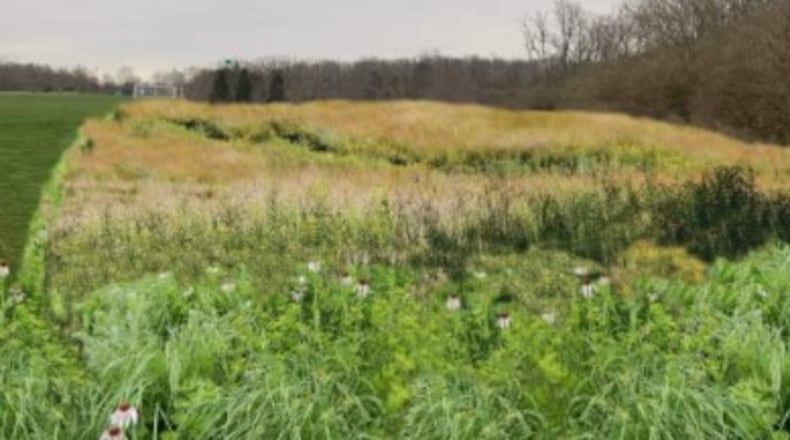The project is a collaboration between city staff, community members, and organizations such as the Audubon Miami Valley, which is helping to cover the costs for the initial test pilot programs.
David Prytherch, an Oxford city councilor, and professor of geography at Miami University is involved in the initial planning stage of the project. Prytherch also has previous experience in environmental management working for the Pennsylvania Department of Environmental Protection.
“Oxford is a community that really cares about sustainability, and that includes tackling the climate challenge, but also people worried about biodiversity,” Prytherch said. “And so the city owns a lot of land, and so we are trying to explore the opportunities for how we can use those lands better to meet our goals.”
Prytherch said the program is still in its early stages, with research being conducted on which areas might benefit the most from naturalization.
“A group of my advanced planning students did a feasibility analysis that looked at city-owned lands to determine which of them might be suitable for conversion from turf to naturalized landscapes,” Prytherch said. “... And that led to the identification of a couple of pilot sites that we’re going to kind of test out some of these strategies.”
While the City of Oxford is directly improving city-owned land, advocating naturalization for private land remains another priority of the project. To do so, Prytherch advocates passing an ordinance that not only allows citizens to grow naturalized areas of their lawns that don’t require mowing but also encourages them to do so.
“A proposed ordinance would make it explicit that ‘you can do this, and here are the right ways to do it,’” Prytherch said. “It’s not just not mowing, it’s establishing a planting of native species, so we’re working towards an ordinance that would make that really clear to people that you’re permitted to do that.”
Prytherch said he hopes that the current pilot projects would be able to draw the attention of homeowners.
“Some of the projects we’re doing at the park would help people understand how they can do it because it’s not easy,” Prytherch said. “It’s a process to convert your lawn into a naturalized landscape, so we’re hoping that the pilots in the park can educate people about how they can do it in their yards.”
One method of naturalization, implemented at the Oxford Community Park, requires killing turf grass using herbicides and planting various native grassland species.
Currently leading the charge of the planting and maintenance of native grass, is Steve Ohl, the City of Oxford’s grounds maintenance supervisor.
Ohl said that in their grass naturalization process, they’ve tried to set an example for homeowners to show that environmentally friendly grass doesn’t require access to heavy-duty equipment.
“We’re trying to keep the examples that we’re doing something that’s feasible for a homeowner to do,” Ohl said. “... We’re kind of giving a good example of ‘hey this is how we did it, you can also do this without having to rent any special type of machinery.”
Ohl said if the pilot programs are successful, more areas could be potentially naturalized.
“You know, obviously, anytime you do a renovation that you haven’t had a ton of experience with, you’re kind of taking a chance of, how is this going to work right?” Ohl said. “We don’t know any of that, so we’re kind of going into it with these pilot things, just to kind of dip our toes in the water and feel the process out.”
Currently, Oxford Community Park has areas of naturalized grass, with future additions coming at Merry Day Park and the Oxford Waste Water Treatment Plant.
Oxford stakeholders identified 38 acres of public land that are suitable for naturalization, with 18 acres currently being used as high-maintenance, low carbon-holding turf.
About the Author
